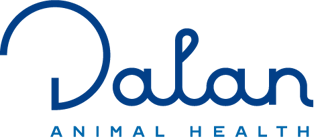Dalan Animal Health Raises $4.5M in Series Seed 3 Funding to Accelerate Global Expansion and Product Pipeline

Key Points:
- $4.5 million in Series Seed 3 funding, led by Prime Movers Lab with participation from At One Ventures, bringing the company’s total funding to $10 million.
- The funding will accelerate Dalan’s product pipeline and facilitate its global expansion, aiming to protect the health of honeybees and secure the global food supply.
- Dalan’s pioneering work in developing the world’s first honeybee vaccine represents a significant market opportunity, with the potential to transform the agricultural sector and increase yields for farmers who rely on pollination for their crops.
ATHENS, GA. — Tuesday, June 27, 2023 – Dalan Animal Health, Inc. (“Dalan”),
a pioneering biotech company in insect health, today announced the successful closure of a $4.5 million Series Seed 3 funding round. The round was led by Prime Movers Lab with participation from At One Ventures, bringing Dalan’s total funding to $10 million.
The additional funding will enable Dalan to expedite its product pipeline and expand its operations beyond the United States. With the largest honeybee sector residing in Europe, boasting 20 million hives compared to the US’s 2.67 million, the global need for sustainable solutions in bee health is evident. Dalan is committed to making its groundbreaking technology available where it is most needed, as swiftly as possible.
“Dalan’s innovative approach to insect health represents a significant market opportunity,” said Dakin Sloss, Founder and General Partner of Prime Movers Lab. “Their pioneering work in developing the world’s first honeybee vaccine has the potential to transform the agricultural sector and secure the global food supply.”
The recent approval of Dalan’s first-of-its-kind honeybee vaccine by the USDA has highlighted the global interest and pressing need for sustainable solutions in the industry. The vaccine, designed to protect honeybees against the devastating American Foulbrood disease, is set to improve the health and productivity of honeybee colonies, thereby increasing yields for farmers who rely on pollination for their crops.
“Most of terrestrial biomass is plants, and most of those are flowering plants. The first vaccine to protect this commercially critical pollinator is a significant stride for protecting both biodiversity and our food supply,” said Tom Chi, Founder of At One Ventures.
Annette Kleiser, CEO of Dalan Animal Health, expressed her gratitude for the support and shared her vision for the future. “We are excited to accelerate our product pipeline and expand our reach globally. Our work is vital for sustainable agriculture, and this funding will help us bring our solutions to where they are needed most.”
The honey bee vaccine, manufactured by Diamond Animal Health (Des Moines, IA), a wholly-owned subsidiary of Heska (NASDAQ: HSKA), will initially be distributed on a limited basis to commercial beekeepers and queen producers. Beekeepers interested in safeguarding their colonies with Dalan’s vaccine can visit the website at https://www.dalan.com/contact or call 844-483-2526.
About the vaccine
Dalan’s vaccine uses killed whole-cell Paenibacillus larvae bacteria and is administered by mixing it into queen feed consumed by worker bees. The vaccine is incorporated into the royal jelly by the worker bees, who then feed it to the queen. The queen ingests the vaccine, and fragments are deposited in her ovaries, providing immunity to the developing larvae. The non-GMO vaccine can be used in organic agriculture, and pivotal efficacy studies have shown its potential to reduce larval death associated with American Foulbrood infections caused by P. larvae.
About Dalan Animal Health, Inc
Dalan Animal Health ( www.dalan.com ) is dedicated to preventing diseases that affect invertebrates, increasing profitability and yield for producers worldwide. This platform technology uses transgenerational immune priming, allowing the maternal animal to pass immune modulators (e.g., antigens, anti-microbial molecules) to the next generation larvae before they hatch. Dalan plans to develop vaccines for other honeybee diseases and underserved industries, such as shrimp, mealworms, and insects used in agriculture. The company is headquartered in Athens, Georgia, at the University of Georgia’s Innovation Hub.
Media Contact:
Ian Murphy
Phone: (310) 689-6397 Email: press@dalan.com





